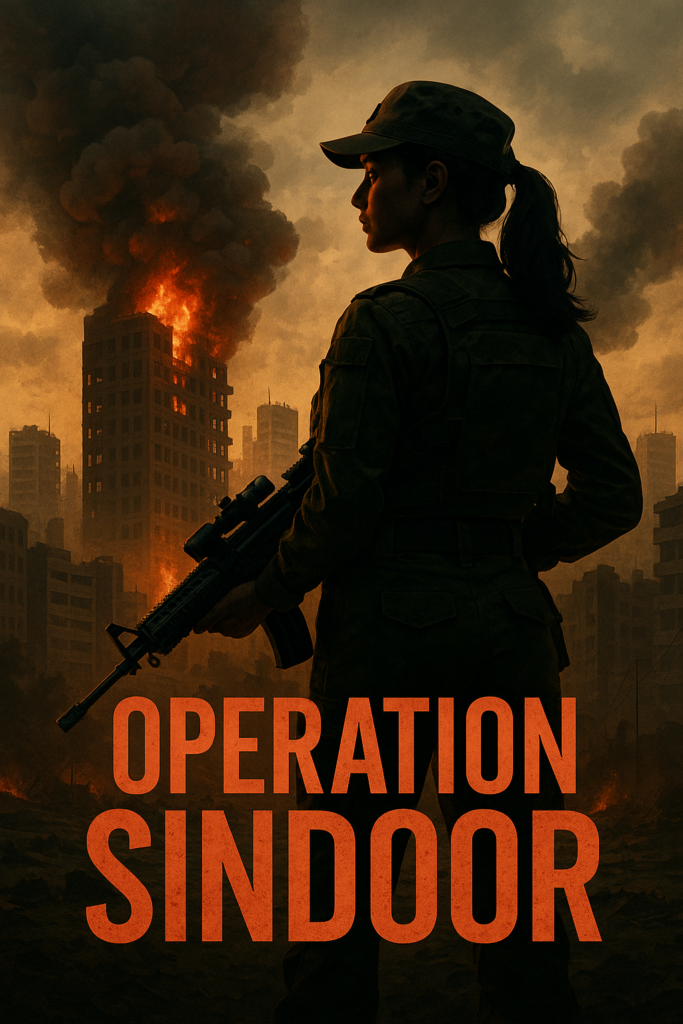In the hours following India’s high-profile military retaliation dubbed Operation Sindoor, the country witnessed a wave of patriotic fervor, solidarity messages, and social media support. But in a quieter corner of India’s cultural capital, another race had already begun — this time not for territory, but for titles.
By the end of the week, more than two dozen Bollywood producers had rushed to register titles such as Mission Sindoor, Sindoor: The Strike, and Hindustan Ka Sindoor, vying for cinematic ownership over one of India’s most emotional and politically charged military operations in recent years.
Among the first to go public was director Uttam Maheshwari, who announced a film titled Operation Sindoor, releasing a stylized, AI-generated poster showing a female soldier silhouetted against a war-torn skyline. The backlash was swift.
Social Media Backlash and Director’s Apology
The poster, though intended to honor the Indian armed forces, was met with fierce criticism online. “Shameful opportunism,” one post read. “Let soldiers fight. Let families mourn. Filmmakers can wait,” said another.
Caught off-guard, Maheshwari issued a public apology. In a statement, he wrote that the film was “not about cashing in on tragedy” but “a tribute to the spirit of India.” He announced that the film’s production would be reconsidered in light of public sentiment, and that his team had deleted promotional material.
“We understand the timing was hurtful,” he said. “Our intention was patriotic, not profit-driven.”
A Trend of Nationalistic Storytelling
This isn’t the first time Bollywood has gravitated toward India’s defense narrative. In the last five years, the Hindi film industry has seen a marked shift toward nationalistic storytelling — Uri: The Surgical Strike (2019), Shershaah (2021), and The Kashmir Files (2022) have all performed exceedingly well at the box office, driven by emotionally charged narratives and political relevance.
This has led to a pattern where filmmakers, often with little lead time, register film titles based on breaking news or military campaigns — even before full facts of the events are known.
According to a source at the Indian Motion Picture Producers Association (IMPPA), “It’s become routine. As soon as there’s a military or political flashpoint, there’s a deluge of title applications within 48 hours.”
Between Tribute and Commercialization
The line between national tribute and commercial exploitation has never been thinner. The announcement of Operation Sindoor exemplifies a broader debate around how — and how soon — the entertainment industry should respond to national trauma.
Critics argue that jumping into production on a sensitive military operation, often before families of soldiers have even had closure, can border on emotional commodification. Others defend such efforts as necessary reflections of national spirit.
Film critic Meera Kashyap explains, “Patriotic films aren’t inherently exploitative — but the timing and tone matter. When grief is fresh, empathy must take precedence over entrepreneurship.”


